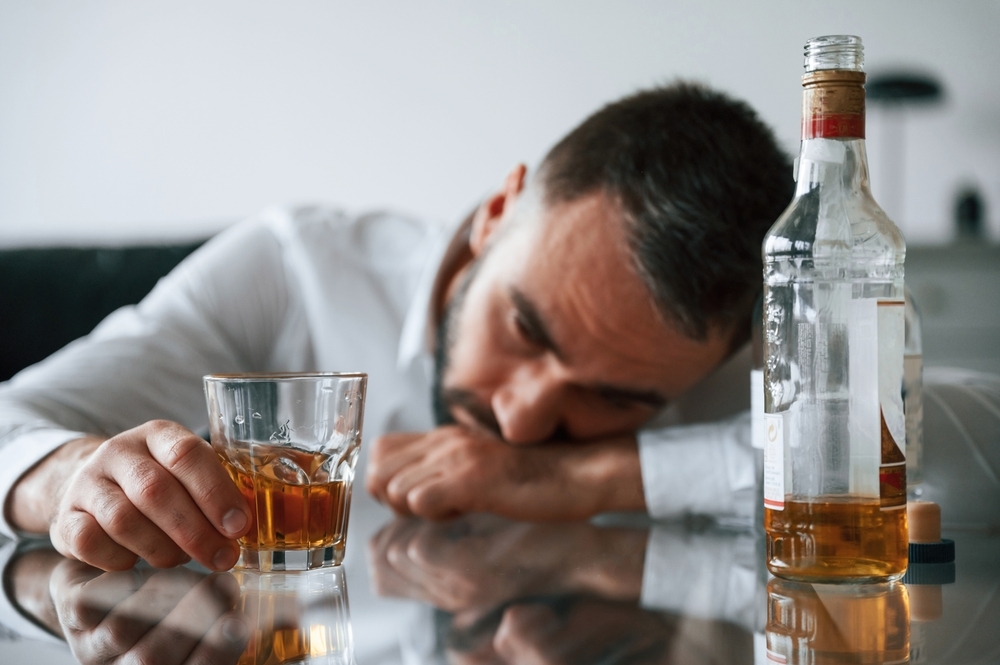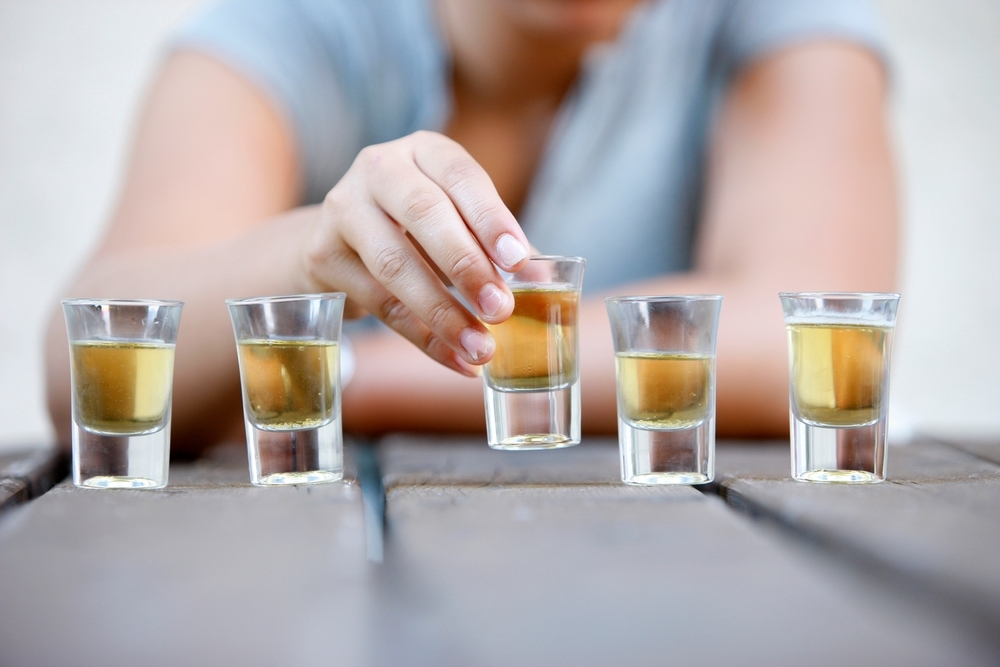Last Updated:
April 10th, 2025
Holidays, for most people, are a chance to drop their guard, relax and unwind. This celebratory time is often spent with a drink in hand, yet experts are warning of increasing cases of fake alcohol sold abroad by unscrupulous retailers.
Colourless and often indistinguishable from a legitimate product, illicit alcohol is a growing problem in tourist hotspots.
What exactly is “fake alcohol”?
Legally-produced and certified alcoholic drinks contain a substance called “ethanol,” which is made by fermenting yeast, sugars and starches. This is the chemical that gives a drink its intoxicating effects. Ethanol is metabolised by your liver, then expelled and is generally seen as safe for human consumption.
There are also other, cheaper forms of alcohol in products like nail polish remover, antifreeze and paint stripper. According to the UK Food Standards Agency, fake alcohol is made by adding these forms of alcohol to drinks that imitate well-known brands, and the risks of ingesting them can be catastrophic.
The dangers of drinking fake alcohol
The types of alcohol found in fake alcoholic drinks cannot be processed like ethanol can. Substances like methanol and isopropanol used in fake alcohol are extremely toxic and turn into formic acid in the body, causing blindness, comas and even death. Digesting just a small amount can have fatal consequences.
The International Criminal Police Organisation INTERPOL lists some of the symptoms of poisoning from fake alcohol, including:
- Confusion, disorientation and loss of coordination
- Severe vomiting
- Slowed breathing
- Pale skin or blue-tinged face and fingers
- Hypothermia
- Stupor (being conscious but unresponsive)
- Passing out, becoming unconscious
- Blindness
- In severe cases, death
Recent cases and growing trends of fake alcohol abroad
If you live in the United Kingdom, the US, or most countries in the Western world, the chances of buying and consuming fake alcohol may be relatively slim, though not zero. Our home countries generally have stronger laws and regulations in place to ensure quality and safety standards are always met.
Unfortunately, that isn’t the case for many tourist locations worldwide.
Like any consumer product, fake alcohol wouldn’t be produced if there wasn’t money to be made from it. Tourist hotspots can be flooded with products meant to be sold quickly and inconsequentially. Hotspots are filled with holiday-goers willing to part with money for a sound deal before heading back home a week or so later.
As we’ve seen in some recent cases, however, the dangers of alcohol sold through illegal means have led to tragic consequences. Some of these cases include:
Is it only a problem abroad?
Recent and historical cases of fake alcohol highlight the need for tourists to stay vigilant while abroad, but fake alcohol is not only limited to far-away or developing countries. As recently as September 2024, authorities in Jersey issued a government warning for a fake batch of counterfeit Vodka, imitating the popular Scottish brand Glen’s.
While the threat may be slightly higher in developing countries or places with looser alcohol regulations, travellers should stay vigilant wherever they roam. Knowing how to spot fake alcohol and only buying from trusted sources is the best way to stay safe.
How can I spot fake alcohol?
Travelling abroad to a country with a new language, culture, or locale can be overwhelming. Tourists often feel like they already have a list of challenges to take care of, from remembering directions back to the hotel from the beach to learning numbers and phrases for marketplace haggling.
While many of us want to simply “switch off” and become less vigilant with what we buy on holiday, the risk of alcohol use from unregulated sources can have serious and even fatal consequences. A good frame of reference to keep in mind is the Food Standards Agency’s “Four P’s” model, reminding you to stay safe and alert when buying drinks. The steps are:
- Place: Once you’re abroad and gathering your bearings for local convenience shops, keep a mental note of shops that feel reputable, where others are buying too. In a tourist hotspot, locals may be brewing and selling alcohol illegally in their own homes, so only buy from a reputable seller.
- Product: Fake alcohol is manufactured with disregard for the law and manufacturing standards, so its look, smell and taste can be varied. If it feels wrong, don’t risk it, especially for brands of alcohol you’ve never heard of. This can be especially true of Vodka, which is the most commonly faked spirit. There should be no sediments or white particles in the liquid, so avoid it if it’s not entirely clear.
- Price: If you’re buying a familiar brand, you might find it is slightly cheaper than you’re used to. However, if it feels too good to be true, it probably is. For any brands you haven’t seen before, do some research on the average price for the product and apply the same rule.
- Packaging: Carefully examine any bottles you purchase. Check to make sure it’s completely sealed and observe the labelling. Does any of it look blurry, or is any of the text misaligned or misprinted? Try to learn which signs or stamps of authenticity should be on the bottle, like holograms and tamper-proof seals.
Beyond store or corner shop purchases, you should also be wary of drinks served in bars, clubs, or nightlife strips, especially where drinks are sold at unusually low prices. If a cocktail or spirit tastes strange, overly sweet, or unusually strong, it could contain fake or counterfeit alcohol.
Keeping a balance of the Four P’s model while you’re abroad will significantly lower your chances of buying or consuming fake alcohol. If you think you’ve seen the sale of illicit or fake alcohol, do not buy it and report the product to your local product standards authority.
Finally, before your holiday begins, take a moment to note emergency service numbers in case of alcohol poisoning. If you or a person you’re travelling with suspect you’ve ingested it, seek medical help right away.
I need help with an alcohol addiction
Regardless of whether you drink while at home or on holiday, alcohol addiction can become incredibly difficult to manage and life-threatening if left unchecked. If you or a loved one struggles with battling alcohol addiction, please know that we’re here for you.
At UKAT, we’re committed to guiding you toward complete recovery. Our alcohol detox programmes offer personalised care at every stage, along with aftercare and external support for both you and your loved ones.
Take the first step toward a healthier, sober future today. The help you need could be just one phone call away.
(Click here to see works cited)
- Mathew F, Goyal A. Ethanol. [Updated 2024 Aug 11]. In: StatPearls [Internet]. Treasure Island (FL): StatPearls Publishing; 2025 Jan-. Available from: https://www.ncbi.nlm.nih.gov/books/NBK556147/
- “Fake Alcohol.” Food Standards Agency, www.food.gov.uk/safety-hygiene/fake-alcohol
- “Spiking and Methanol Poisoning.” Travel Aware, 28 Nov. 2024, travelaware.campaign.gov.uk/spiking-and-methanol-poisoning/.
- “Unsafe Alcohol.” INTERPOL, www.interpol.int/en/Crimes/Illicit-goods/Shop-safely/Unsafe-alcohol
- “Alcoholic Products Technical Guide.” Alcoholic Products Technical Guide – Section 3 – Production of Alcoholic Products – Guidance – GOV.UK, www.gov.uk/guidance/alcoholic-products-technical-guide/section-3-production-of-alcoholic-products
- Turkish Minute. “Toxic Alcohol Death Toll Climbs to 37 in İstanbul amid Major Crackdown on Producers.” Turkish Minute, 16 Dec. 2024, www.turkishminute.com/2024/12/16/toxic-alcohol-death-toll-climbed-37-istanbul-amid-major-crackdown-on-producers/.
- Turkish Minute. “Toxic Alcohol Death Toll Climbs to 37 in İstanbul amid Major Crackdown on Producers.” Turkish Minute, 16 Dec. 2024, www.turkishminute.com/2024/12/16/toxic-alcohol-death-toll-climbed-37-istanbul-amid-major-crackdown-on-producers/.
- “British Consulate Bali Launches ‘Methanol Poisoning Awareness Campaign’ in Bali.” GOV.UK, GOV.UK, 10 Oct. 2014, www.gov.uk/government/news/british-consulate-bali-launches-methanol-poisoning-awareness-campaign-in-bali.


